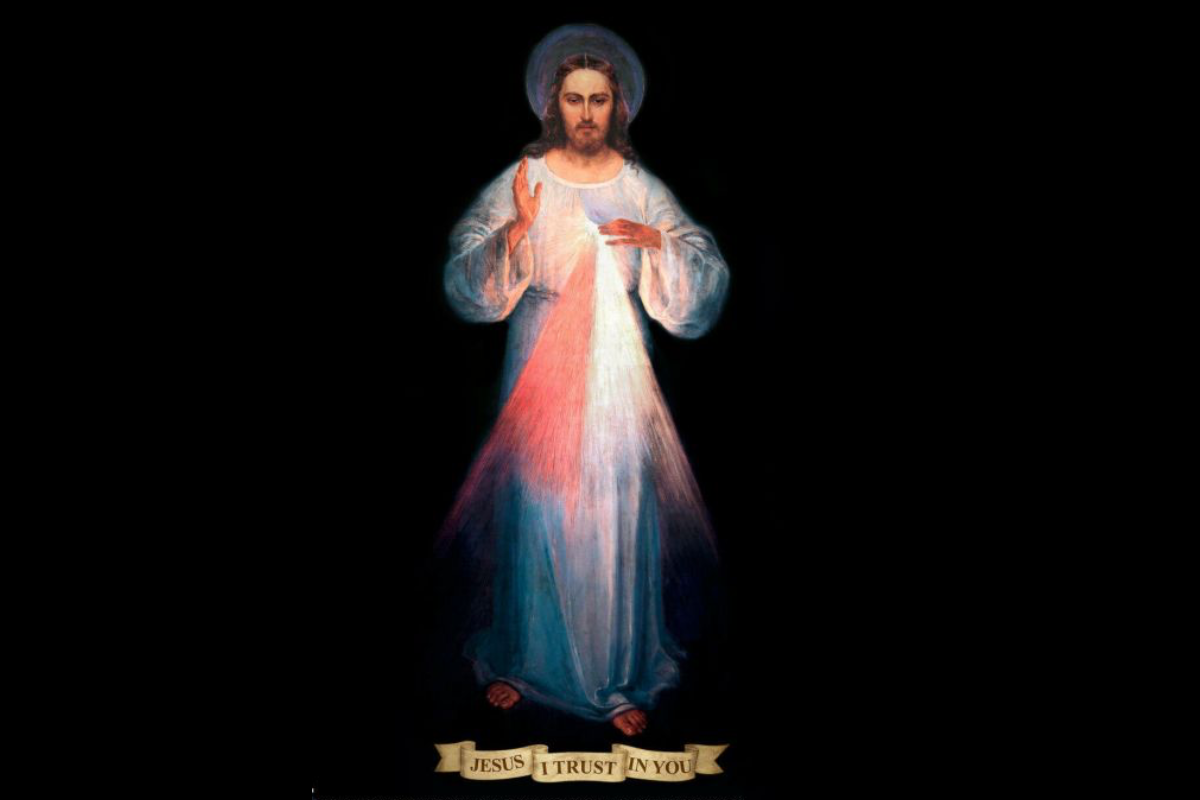Divine Mercy is demonstrated when God’s gratuitous love meets us in our weakness and suffering. In the words of Saint Faustina Kowalska, “Love is the flower, mercy the fruit.” It is an essential element in God’s plan for salvation of mankind. When we recognize that His mercy is greater than our sins, we trust in Him and seek that mercy for our benefit and for the benefit of the whole world. In this way, our despair is replaced with His peace.
Misericordia, the Latin word for mercy, literally translates as “miserable heart.” In his Summa Theologiae, Saint Thomas Aquinas defines misericordia as “the compassion in our hearts for another person’s misery, a compassion which drives us to do what we can to help him” (ST II-II.30.1). This explanation corresponds perfectly with the Divine Mercy image which depicts rays of mercy flowing forth from the heart of Jesus.
The Catechism of the Catholic Church teaches us, “‘God created us without us: but He did not will to save us without us.’ To receive His mercy, we must admit our faults. ‘If we say we have no sin, we deceive ourselves, and the truth is not in us. If we confess our sins, He is faithful and just, and will forgive our sins and cleanse us from all unrighteousness’” (CCC 1847).
Saint Faustina wrote in her diary that Jesus revealed, “before I come as a just Judge, I first open wide the door of My mercy. He who refuses to pass through the door of My mercy must pass through the door of My justice” (Diary 1146).
We are, therefore, invited to seek mercy from our Lord. Through prayer and repentance, we receive this unmerited gift of grace. Mercy flows from us to others when we extend our love, compassion, and forgiveness to our neighbors. The more we trust in Jesus, the more graces we receive and the more we serve as a conduit to share His joy. We are the only limiting factor in this cycle. As stated in the refrain of Psalm 136, “His mercy endures forever.”
This month, we will explore Divine Mercy in our “Weekly Challenges.” Please comment on ways that we can express this relationship of love in our world. How can we spread mercy like ripples on water?

